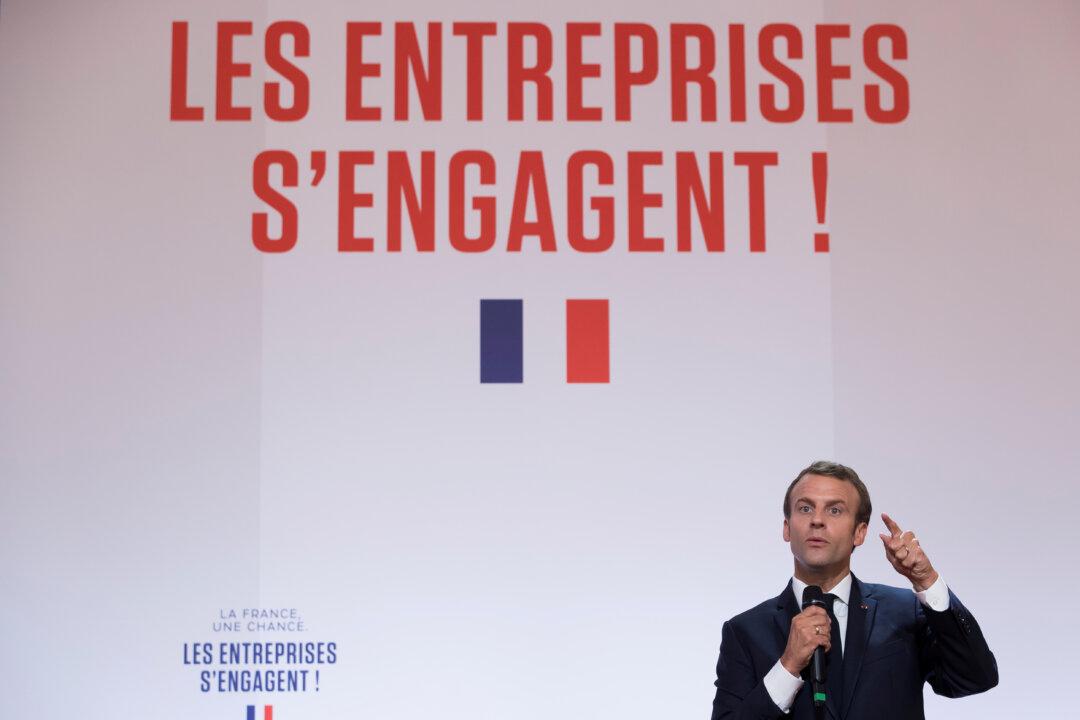PARIS—France wants to tighten takeover rules to protect companies deemed to be of strategic importance, as it walks a fine line between preserving a surge in investments and preventing its technology falling into the hands of foreign powers like China and the United States.
In a wide-ranging business bill to be debated in the autumn, President Emmanuel Macron’s government is proposing to widen the scope for state intervention and substantially increase the use of “golden shares” to protect national interests.





